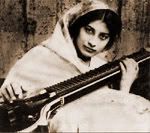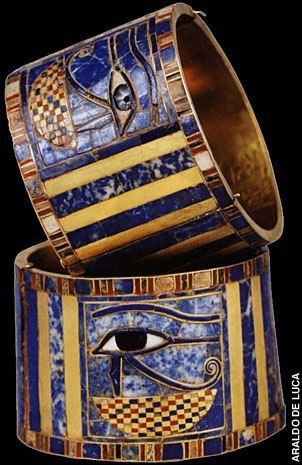Ok so being an unofficial student of history I knew about this amazing lady from WWII but the fact that she was the great-great-grandaughter of the legendary Tipu Sultan was something new and astonishing for me. I HAD to do some R&D and figure out details of who she actually was. Her story will leave you with mixed emotions, a bit sad one.

Noor Inayat Khan was one of the most romantic of the SOE agents and one whose suitability to be sent into the field has often been questioned. The great-great-grandaughter of the legendary Tipu Sultan, the 18th century Muslim ruler who died in the struggle to stem the British conquest of Southern India. Her father was a leader of the Sufti mystic community. Her mother was an American related to Mary Baker Eddy, the founder of Christian Science.
Inayat Khan, Noor's father, took his family to pre-revolutionary Russia, where they were taken up by members of the Imperial Court and where a daughter was born in the Kremlin on New Year's Day, 1914.
She was given the name Noor, meaning 'light of womanhood', and would be known by her father's name, the patronymic Inayat, and the title Khan, an honorific denoting aristocratic birth.
Inayat Khan moved the family to London shortly before the outbreak of the First World War but poverty and prejudice led to another move, this time to the outskirts of Paris. Gentle, shy, sensitive, musical, dreamy, poetic Noor lived by what her biographer called 'a different rhythm' from the other children.
When Noor was 13 her father died, leaving her, as the oldest child, the mainstay of her grieving mother and younger siblings. On leaving school Noor studied music for six years, composing for the harp and piano, and little by little becoming more European and less oriental in her habits and dress. She moved about more independently than the veiled women of the tradition out of which she had come. She wore make-up that made her skin lighter.
She took a degree at the Sorbonne in child psychology, studied several modern languages, travelled on the Continent with her brother Vilayat, and began a career as a freelance writer. She became a frequent contributor of articles and stories to newspapers and magazines and her children's fairy tales were broadcast by Radiodiffusion Francaise. A book of her stories was published in England in 1939 and she was about to bring out a childrens newspaper in Paris when war broke out.
In the early months of the war Noor and her sister took a Red Cross nursing course, intending to join the war against the Nazis in the only way that seemed practical. With the Germans approaching Paris, the family joined the exodus from the city. They made their way to Bordeaux and, because Vilayat had been born in England, they managed to get on the last boat evacuating British subjects.
Noor was 26 years old and living in Oxford in August 1940. However, nursing didn't seem to her like enough. Her brother had joined the RAF and in November Noor joined the Womens Auxillary Air Force (WAAF). As Aircraftwoman 2nd Class Nora Inayat Khan she was posted to Harrogate with the first groups of WAAF's to be sent for training as wireless operators. In June 1941 she was posted to a bomber training school station, where she found the work dull. She applied for a commission and was selected for an intensive course of more specialised and highly technical signals training. That month a fairy tale she had written was broadcast on the Childrens Hour of the BBC.
Noor told her brother and her friend Jean that she thought she would not get her commission; she felt she had made an unfortunate impression on the officers interviewing her by becoming too emotional on the then problematic subject of Indian independence.
To Jean her brother expressed the concern of what he called Noor's unworldliness would be her undoing - that she was 'born for sacrifice'.
And then, 'out of the blue', as these summonses were always characterised, Noor was asked by the War Office to present herself at a room in the Victoria Hotel in Northumberland Avenue for an interview with a Captain Jepson. He told her about the need for wireless operators to work with other British officers organising resistance groups in occupied France, and made clear the risk of capture, torture and death at the hands of the Gestapo.
Early in February 1943 Noor was posted to the Air Ministry, Directorate of Air Intelligence, seconded to the FANY's, and sent to Wanborough Manor, near Guildford in Surrey, to begin her SOE training. From there she was sent to Aylesbury, in Buckinghamshire, for special training as a wireless operator in occupied territory.
She would be the first woman to be sent over in that capacity, all of the women agents before her having been sent as 'couriers'. Having had previous W/T training, she had an edge on those who were just beginning their radio training. She was fast, and she was accurate.
From Aylesbury Noor went on to Beaulieu, in Hampshire, where the security training was capped with a practice mission - in the case of wireless operators, they had to find a place in a strange city from which they could transmit back to their instructors without being detected by an agent, unknown to them, who would be shadowing them. The ultimate exercise was the mock Gestapo interrogation, intended to give agents a taste of what might be in store for them if they were captured and some practice in maintaining their cover story.
Noor's escorting officer found her 'mock' interrogation 'almost unbearable' and reported that 'she seemed absolutely terrified .... so overwhelmed she nearly lost her voice' and that afterwards, 'she was trembling and quite blanched'. her finishing report, which the official historian of F Section found in her personal file long after the war, read: 'Not overburdened with brains but has worked hard and shown keeness, apart from some dislike of the security side of the course. She has an unstable and temperamental personality and it is very doubtful whether she is really suited to the work in the field.' Next to this comment Buckmaster has written in the margin 'Nonsense'.
Events in the Paris region were rushing to a head and Baker Street were desperate for another radio operator to deal with the stepped-up message traffic. Noor had not finished her security course but she was the best prepared operator on hand, and it was decided to send her.
She was given the cover name and identity of Jeanne-Marie Regnier, a childrens nursemaid, and the code-name 'Madeleine'. She left from Tangmere, in Sussex, by the May moon, but the reception committee was not on the ground to meet the plane, and it had to return. After the build up of tension and anxiety, the anticlimax was a distinct let down.
Then it was the next moon period. When the time came for her flight, Vera Atkins accompanied her to the airfield. They had supper in the ivy-covered cottage that was the operational headquarters for 161 Squadron. In the party were an agent bound for Marseille to do sabotage and another on her way to the south-east countryside as a courier, as well as Diana Rowden, on her way to the Jura.
Whilst at the cottage Vera Atkins saw a paperback book beside one of the pilots' beds. Its title was Remarkable Women. She remembers saying that the book would have to be rewritten 'after these girls have done their stuff'. The date was 16th June 1943.
Early the next morning, Noor climbed out of a Lysander in a moonlit meadow a few miles north-east of Angers, near where the Loire meets the Sarthe, in a double operation that had been organised by an air movements officer. As the two planes came in, one agent climbed out of each while another handed out the baggage before following down the ladder. Within minutes the planes had taken on five returning passengers, three French political figures and two F Section agents and were heading back to Tangmere.
By that evening Noor had made her way to Paris to the address given to her. When she arrived, however, Noor was under the impression that the password with which she had been provided was intended for an old lady. The man who answered the door, Emile Henri Garry, who was anything but an old lady, found himself in turn bewildered by his visitor, who had arrived carrying a bunch of flowers for her contact, until finally one of them broke the ice and passwords were exchanged to their mutual satisfaction.
It was discovered that Noor had had nothing to eat since leaving England, twenty four hours earlier. She had been given a forged ration book, but she did not understand how to use it and was waiting until someone could explain the proceedure to her.
What happened from then on was pieced together by Jean Overton Fuller after the war from the accounts of those who had known and worked with Noor during the months between her confused arrival and her arrest in the autumn.
Noor was introduced to the Prosper group and Gilbert Norman, her fellow wireless operator, took her out to Grignon, north-west of Versailles, to meet other members of the network. At one point Noor casually left a briefcase containing her codes out on a table in the entrance hall, where, as it was pointed out to her, anyone might have come along and found it.
But, although they may have been more security minded than Noor, the groups caution had its limitations too, and the following weekend the whole group, including Noor, lunched together in Paris, waiting for another group of agents from Sologne who never arrived. It was the last such get-together. Barely a week after Noor's arrival in Paris, three agents were arrested.
The agents who survived were those who scrupulously obeyed the laws of caution. In cities, they took care that even their associates did not know where they lived or what their cover name and identity was. In the country they moved from one house to another every few days. If they were radio operators, they did not stay on the air for more than a few minutes at a time and transmitted from different places whenever possible. Those who eluded capture were seldom those who were seen dining together in black-market restaurants, talking things over in English !
With the wave of arrests washing over the various groups, Noor's was one of the few radios still operating. With a sense of the importance of her unique position which amounted to a sense of mission, she refused an offer to bring her back to England. And from then on, she was on the run, transmitting from a series of different houses and apartments, trying to avoid the direction-finding trucks, several times just managing to elude the Gestapo.
Noor refused yet another offer to get out and return to England. For the rest of the summer she moved around looking for places she could transmit from safely. She took a tiny room in an apartment block in Neuilly-sur-Seine, almost entirely inhabited by German officers, and a story has come down that one of them courteously offered her a hand when she was having difficulty hanging her aerial out on the branch of a tree.
Buckmaster's deputy, Bodington, was sent out to appraise the damage done to the groups following many arrests and he gave Noor instructions to lie low.
Throughout all of this Noor carried her notebook wherever she went. It was an ordinary school copy book and in it she kept a record of all the messages she had sent and received since arriving in France, in code and in plain text. This was a stunning breach of the most elementary security precautions and it appears to have been the result of a misunderstanding on her part of the phrase in her operational orders instructing her to 'be extremely careful with the filing of your messages.'
Evidently she was unfamiliar with the use of 'filing' in the sense in which a journalist 'files' - that is 'sends' - a story, and thought she was meant to keep them in some sort of filing system!
The tell-tale messages were on the table beside her bed when she was arrested in her room, along with her codes and her security checks. They would prove invaluable to her captors.
Noor had eluded the Gestapo all through the summer and into the early autumn and at the end of September told some of her friends that she expected to be going back to England very soon.
It was early in October when the Gestapo was contacted by a woman who called herself Renee with an offer to sell them Madelaine, a name they knew well as that of an F Section radio operator they had so far been unable to track down. The woman seemed to know a great deal about F Section and for a small price, much less than the Gestapo were prepared to pay to get their hands on Noor, she passed on the address where Noor was now living. Like so many others of the apartments inhabited by F Section agents, it was only a few minutes away from Gestapo headquarters on the Avenue Foch.
Noor put up quite a fight when she returned home and found a single Gestapo agent waiting for her, so much so that he had to cover her with his gun whilst he phoned for assistance in order to bring her in. They also retrieved her transmitter and the notebook containing all her messages, codes and security checks.
On arrival at the Gestapo headquarters on Avenue Foch she was taken up to the fifth floor and within an hour she had made an escape attempt, climbing out of a bathroom window onto a ledge where she was spotted and brought back in.
For the next five weeks she was interrogated daily but never mistreated although there was constant and increasing pressure on her to co-operate. She steadfastly refused and never told them anything of an official nature beyond that her name was 'Nora Baker' and that she was a WAAF officer.
Noor attempted a second escape, with two other agents being held at Gestapo headquarters, but they were soon recaptured and Noor was shipped off to Germany.
She was locked up in the womens section of the civil prison at Pforzheim where, as a 'very dangerous' prisoner, she was kept in chains, her hands and her feet chained together, with another chain connecting hands to feet, unable to feed or clean herself. She was kept in solitary confinement separated from the rest of the prison by two sets of iron gates. The governor of the prison, interviewed years later by Jean Overton Fuller, "said he thought the tranquility did her good."
Some Frenchwomen sent to the prison as political prisoners managed to communicate with 'Nora Baker', as Noor was calling herself. By this time it was summer and Noor's messages noted the Fourth of July and Bastille Day. The last words from her, in a shaky hand, were "I am leaving". It was the 11th September 1944.
That night, almost ten months after she had been locked up, she was taken by the Gestapo to Karlsruhe and from there, along with three other women, to Dachau, about 200 miles away.
The other three women were also F Section agents, Madeleine Damerment, Elaine Plewman and Yolande Beekman.
The two men, named Wassmer and Ott, who escorted the four women were the same two who had brought four other women to the camp at Natzweiler, two months previously, in the July.
They arrived at Dachau around midnight and they walked up the hill from the station to the camp, where they were locked up separately overnight, and in the early morning they were taken to a spot strewn with sand, stained with blood and told to kneel down.
They knelt in pairs, holding hands, as an SS man came up and shot them from behind............
Noor was 30 years old.







